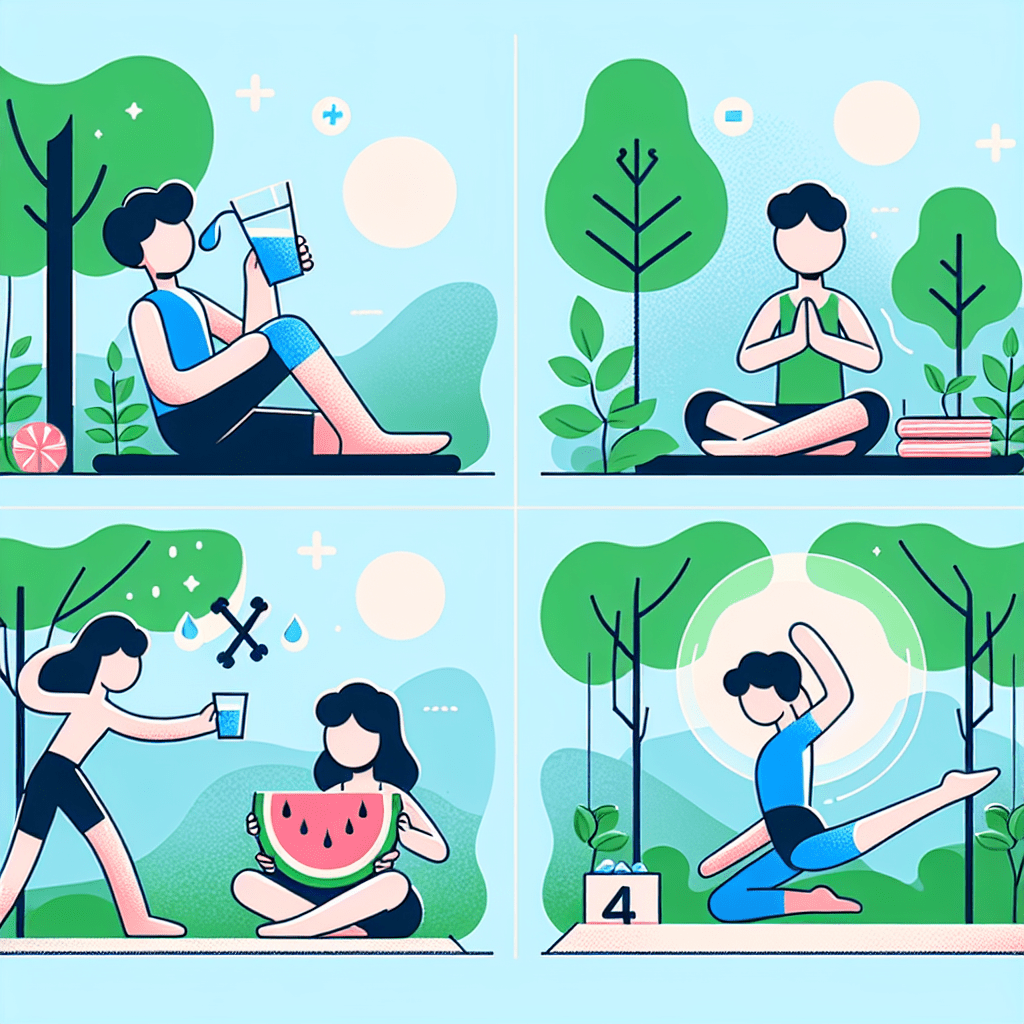4 Tips to Avoid Dehydration and Get Pain Relief

Introduction
Hydration is an essential aspect of maintaining good health and wellness. It not only keeps our body functioning optimally but also plays a crucial role in managing pain. Despite its importance, many people often overlook this basic health need, leading to dehydration and associated complications. This article provides four practical tips to avoid dehydration and get pain relief.
1. Understand the Importance of Hydration
Water makes up about 60% of the human body and plays a vital role in numerous bodily functions, including regulating body temperature, lubricating joints, and flushing out waste products. When we don't consume enough fluids, our body cannot perform these functions effectively, leading to dehydration. Dehydration can cause various health problems, including headaches, fatigue, and muscle cramps, which can lead to pain.
"Water is the driving force of all nature," Leonardo da Vinci once said, highlighting the vital role of hydration in our lives. This quote serves as a reminder of the importance of staying hydrated for our overall health and well-being.
2. Recognize the Signs of Dehydration
Recognizing the early signs of dehydration can help prevent it from escalating into a more serious condition. These signs include thirst, dry mouth, fatigue, dark yellow urine, and headaches. In severe cases, dehydration can lead to confusion, rapid heartbeat, and fainting. If you experience any of these symptoms, it's essential to increase your fluid intake immediately.
"Dehydration can be a serious condition that can lead to problems ranging from swollen feet or a headache to life-threatening illnesses such as heat stroke," says Dr. Robert Glatter, an emergency physician at Lenox Hill Hospital in New York City.
3. Maintain a Regular Hydration Routine
One of the most effective ways to prevent dehydration is to maintain a regular hydration routine. This means drinking plenty of fluids throughout the day, not just when you feel thirsty. The amount of fluid you need can vary depending on your age, sex, weight, and physical activity level, but a general guideline is to drink at least eight 8-ounce glasses of water per day.
4. Choose Hydrating Foods
Drinking water isn't the only way to stay hydrated. Many foods, especially fruits and vegetables, have high water content and can contribute to your daily fluid intake. For example, cucumbers, watermelon, oranges, and strawberries are over 90% water. Including these foods in your diet can help prevent dehydration and provide pain relief.
"Eating a diet rich in fruits and vegetables can help ensure you're getting enough water," says Dr. Dana Cohen, author of the book "Quench."
Conclusion
Staying hydrated is crucial for maintaining good health and managing pain. By understanding the importance of hydration, recognizing the signs of dehydration, maintaining a regular hydration routine, and choosing hydrating foods, you can ensure your body gets the fluids it needs to function optimally.
As the American Heart Association emphasizes, "Staying hydrated is critical for your heart health." So, make hydration a priority in your daily routine, and your body will thank you.
Summary
Hydration plays a crucial role in our health, contributing to various bodily functions and helping manage pain. Recognizing the signs of dehydration, such as thirst, dry mouth, and fatigue, can help prevent this condition. Maintaining a regular hydration routine and including hydrating foods in your diet are practical ways to ensure you're getting enough fluids. Remember, "Staying hydrated is critical for your heart health," as emphasized by the American Heart Association.



